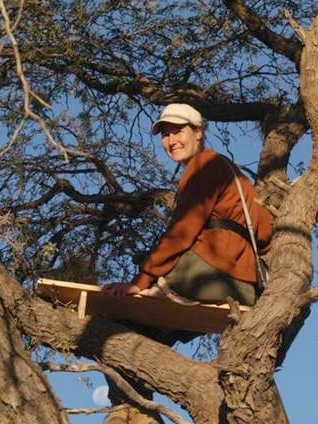 |
|
|
|
 |
I am interested in a diversity of questions in evolution, behavioral ecology and reproductive endocrinology. My research interests are generally concerned with the study of environmental and ecological influences on sociality. My current Masterís research is focused on the parameters influencing the age of sexual maturity in the African Cape ground squirrel (Xerus inauris), a cooperative breeder.
Cooperative breeding is common among social animals and is characterized by group members that exhibit delayed dispersal from the natal group, reproductive suppression, and alloparental care. Mechanisms of reproductive suppression (e.g. reproductive delay) may be mediated through the presence of breeding female group mates, exposure to related and unrelated males, density, body condition and/or resource levels. Amount of resources may influence the age of sexual maturity in sub-adult females directly through effects on body condition and indirectly through effects on social structure. Initial field studies of Xerus inauris indicated a delay of reproduction as a delay of first estrus in sub-adult females differed with number of adult breeding female group members. I am currently investigating the simultaneous effects of social and environmental parameters on the age of sexual maturity to identify the major determinant(s) of reproductive delay in female Cape ground squirrels. My research involves the analysis of behavioral and hormonal data collected from two populations in southern Africa. Preliminary results suggest that age of female sexual maturity was primarily influenced by social structure, with age of sexual maturity increasing with both number of adult breeding females and adult related males.
|

Behavioral observations
|
|
|

|
|

